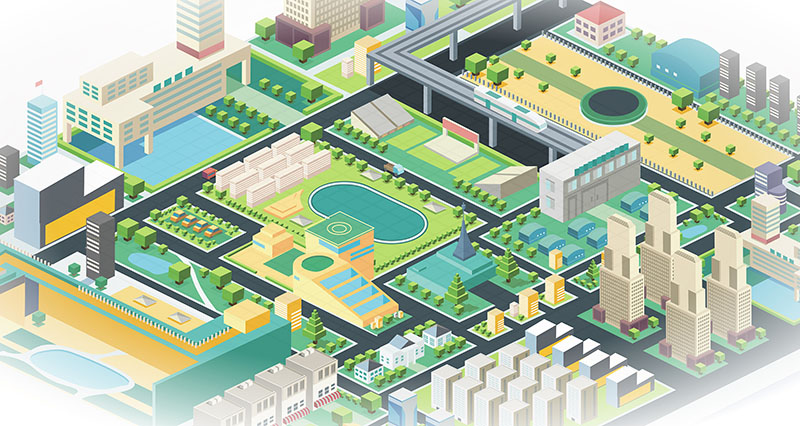New generation information technologies such as the Internet of Things, big data, and artificial intelligence are important supports for the construction of smart cities. Their application not only accelerates the construction of smart cities, but also makes smart cities smarter. As smart cities continue to upgrade, technology giants including Baidu, Tencent, Alibaba and JD.com are vying for deployment, and have signed cooperation contracts with dozens to hundreds of cities. Industry insiders believe that smart city construction will generate huge market demand for new technologies such as big data and artificial intelligence. Related industries have broad prospects, but there are still certain risks and difficulties, and more complete solutions are urgently needed.


Smart cities have reached a turning point and there is still huge room for development
From a global perspective, major cities are gradually “arming” themselves with new technologies such as the Internet of Things, big data, cloud computing, AI, and spatial geographic information integration. Various sensors record every move of residents. Barcelona, Boston, London, Dubai and Hamburg have all embarked on the road to smart cities. India has ambitious plans to build 100 smart cities by 2022, and Singapore, which has a smaller land area, wants to become the world’s first “smart city”. Country”, and China currently ranks first in the number of smart city projects under construction.
The concept of “smart city” has been proposed for nearly ten years. Looking around the world, there is a certain gap between the actual results of most early trial projects and their original propaganda goals. Today, smart city development has reached a turning point. Many cities have moved beyond the pilot phase and are beginning to leverage big data and digital technologies to create smarter, livable homes for residents.
McKinsey Global Institute also examined the pace and current status of smart city construction in 50 cities around the world, and proposed that even the world’s leading smart cities have only realized two-thirds of their potential, and there is still a lot of potential for smart cities. Expansion capacity.
Not only “IQ” but also “emotional intelligence”
At China’s “New Smart City” Summit, Wu Hao, deputy director of the High-tech Industry Department of the National Development and Reform Commission, said that new smart cities are becoming more people-oriented.
In addition to institutional construction, during the transitional period of smart city construction, city residents can also be invited to join in, allowing them to personally implement their ideas for smart cities. Compared with management, residents can perceive smart city needs more keenly and cooperate with managers, which may greatly improve the efficiency of solving problems.
Longgang District in Shenzhen has begun to take action, calling on citizens to report incidents on the WeChat public account and provide timely feedback. For example, a citizen once reported the problem of outdoor barbecue. The public account indicated that the order would be received within one hour, and then someone would be dispatched to the scene within two hours. Finally, the processed photos would be sent to the citizen to provide feedback on the processing results.
This may be a revelation to enterprises: if enterprises want to enter the smart city market, in addition to having a variety of technical solutions and innovative financing models, they also need to have a keen understanding of public participation.